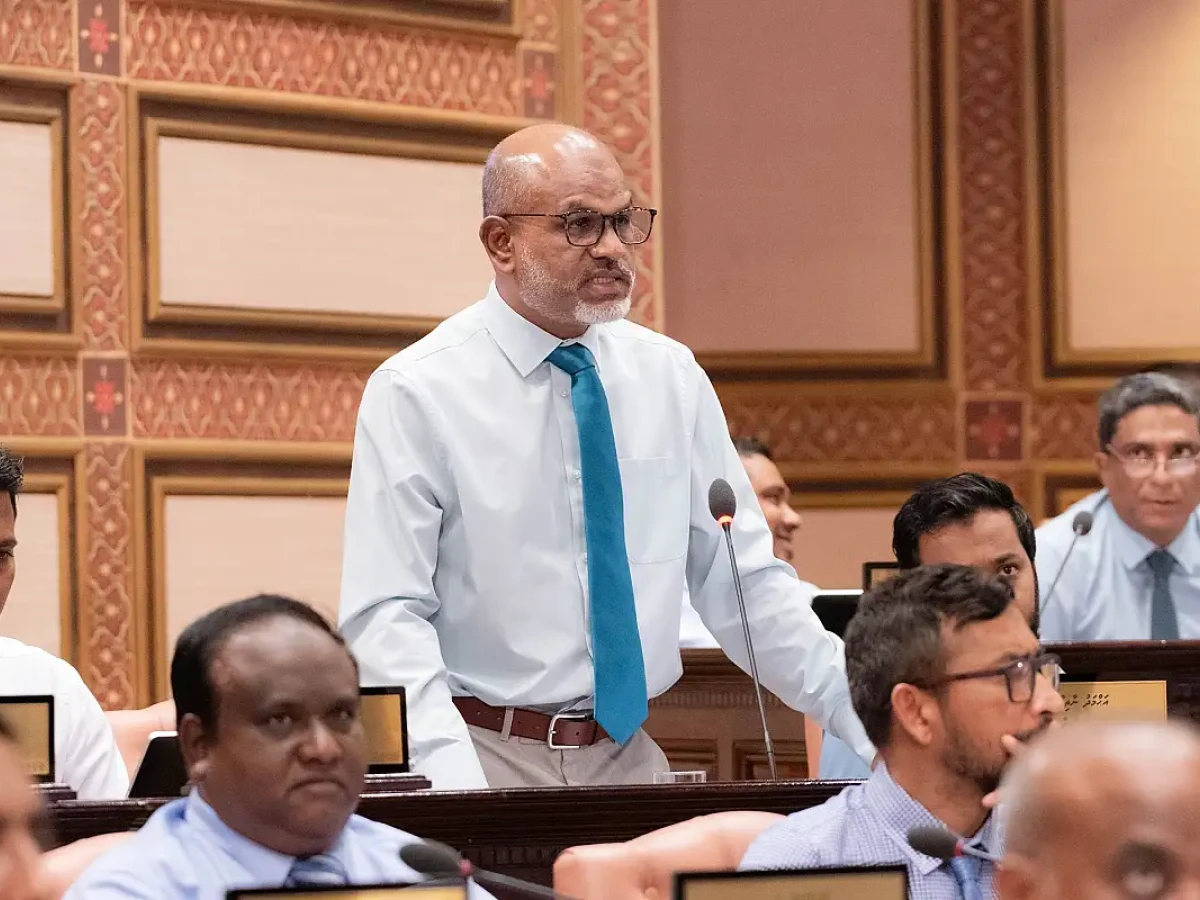
Nazim calls for tax hikes on local sugary beverages
A few years ago, parliament amended the import duty on energy drinks in an effort to discourage their consumption.
Top Stories
Deputy speaker, Dhiggaru MP Ahmed Nazim on Tuesday advocated for the introduction of a tax on sugary beverages, particularly energy drinks, to promote public health in the Maldives.
Nazim's call came as he debated a government proposal to increase the duty on tobacco products, urging lawmakers to consider a more holistic approach to improving the health of the nation.
Nazim emphasised that while tobacco use is a significant health concern, solely targeting it through higher taxes may not be sufficient. He argued that the government should broaden its focus to include other products that pose a threat to public health, such as sugary drinks.
"Focusing on tobacco alone to improve the health of the people would not solve the problem," said Nazim.
He called for higher taxes on sugary energy drinks, which he believes have similar negative health effects.
Nazim pointed out that previous attempts to tax energy drinks have not yielded the desired results. A few years ago, parliament amended the import duty on energy drinks in an effort to discourage their consumption.
However, the results fell short of expectations when energy drinks began to be produced locally in the Maldives. Nazim highlighted that the local production of Coca-Cola’s energy drinks led to lower-than-expected government revenue from the import duty increase, while also failing to achieve the intended health benefits.
"The price of imported energy drinks in the Maldives remains high," Nazim noted. "However, the energy drinks produced locally are sold at nearly the same price as the imported products."
To address the issue, Nazim proposed the introduction of an excise duty similar to those implemented in other countries. Unlike an import duty, an excise tax would be levied directly on companies based on the quantity of sugary drinks they produce or sell, rather than simply taxing imports. This method, he argued, would create a more effective and consistent approach to managing the consumption of sugary beverages and safeguarding public health.
"Taxing sugar is a common practice internationally," said Nazim, citing recent developments in other countries. "Malaysia’s new budget has included an increase in the tax on sugar, and in the UK, sugary drinks have long been subject to taxation."
Nazim’s proposal comes at a time when the government is looking to increase other taxes to support the national budget. Alongside the debate on tobacco duty, the government has submitted bills to parliament seeking to raise three types of tourism-related taxes. These proposals are currently under review at the committee stage.
"Instead of focusing only on tobacco to improve the health of our people, we have to introduce a tax on sugar products more comprehensively and broadly," Nazim stated.




